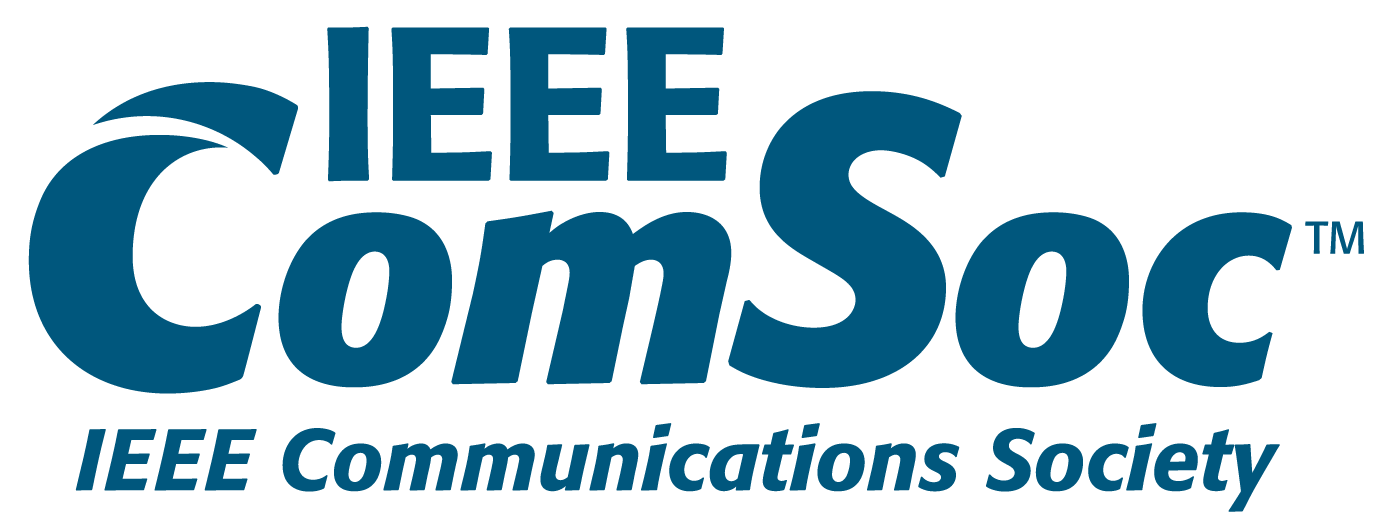
AI-Native
for
Sustainable & Resilient
6G Networks
October 21, 2024
Paris, France
IEEE 6G AI-NET 2024
The forthcoming 6th Generation (6G) wireless mobile network is poised for remarkable growth in the coming decade, more demanding than those of previous 5th generation (5G) networks, driven by the insatiable demand for ultra-fast and high-capacity wireless connectivity, promising 100 times peak bandwidth that facilitates high-fidelity immersive extended reality experiences, enable vehicle-to-everything (V2X) communication for autonomous driving, and establish extremely dense wireless connectivity. We expect new services ranging from a small group of users, such as self-assembling robots, wearables, body and brain-machine interactions, to mass-market services, such as mixed holographic reality, cellular-connected drones, autonomous supply chain, metaverse and massive twinning.
The 6G will also be incorporating non-terrestrial networks, by providing significant enhancements of Internet of Things (IoT) connectivity through Low Earth Orbit (LEO) satellite constellations and High-Altitude Platform Stations (HAPS), which will expand the connectivity of IoT devices beyond terrestrial constraints. Such services impose high-performance, reliability, and consistency requirements.
Topics:
The main goal of this workshop is to address these challenges and present advanced and innovative tools, design and modeling techniques, and algorithms for diverse topics in 6G networking, applications and services. Contributions addressing both theoretical and practical applications, including, but not limited to, the following topics, are welcome for submission:
- Metaverse and immersive 6G Digital Twin
- Emerging Cloud, Edge, Fog, and Embedded ML for 6G RAN and Core
- Optimization and management of 6G multi-RAT RAN
- 6G-Powered Digital Twin for Cellular and Mobile Networks
- Forecasting models for Sustainable 6G
- Generative AI, Small Language Models, and Large Language Models for 6G
- AI-Native Open RAN for 6G
- Data Knowledge Graph, Graph Neural Networks for Sustainable 6G
- Green Intelligent Communications for 6G
- Modelling, slice management, orchestration, and service provisioning for 6G
- QoS management for 6G RAN and Core network
- Blockchain-based trust mechanisms for 6G
- Model Driven Systems Engineering for 6G
- DevOps and GraphOps for closed-loop control in 6G
- Towards Industrial Private 6G Networks
- 6G Non-Terrestrial Networks, 3D Communication, and Native Component of 6G
- Localization and Sensing in 6G
- Security and Resilient 6G Internet Services
- Semantic Communication and 6G
- Industrial and Private 6G Wireless Networks
- Green Networking & Net-Zero Carbon for 6G
- B5G and 6G Implementations, testbeds, and prototypes
Important Dates:
-
Submission deadline: August 13, 2024
-
Acceptance notification: September 02, 2024
-
Camera-ready papers : September 16, 2024
-
Workshop Date: October 21, 2024
Guidelines for Manuscripts
The 6G AI-NET 2024 proceeding will be published in the IEEE Xplore Library. Authors are invited to submit
original, unpublished research. Papers must be written in English and strictly following
IEEE style (10pt font size) .
Papers are to be submitted through the easychair system
Two types of submissions are accepted:
-
Regular Research papers: Contributions should describe original work
(6 up to 6 pages including all text, figures, references, and appendices).
-
Short Papers and position papers: Research in progress,
tools presentations,
and new ideas (up to 4 pages including all text, figures, references, and appendices).
Submitted papers will be evaluated according to their rigor, significance, originality, technical quality, and
exposition, by at least three distinct members of an international program committee.
At least one author of each accepted paper must register and participate in the workshop.
Registration is subject to the
terms, conditions, and procedures of the main conference.
Organizers
- Akram Hakiri, University of Pau & Pays de l'Adour, France
- Aniruddha Gokhale, Vanderbilt University, USA
- Thierry Gayraud, LAAS-CNRS, University of Toulouse, Paul Sabatier, France
- Christine Louberry, University of PAU & Pays de l'Adour, France
Technical Program Committee
- Mohamed Faten Zhani, ETS Montreal, Canada
- Uttam Ghosh, Meharry Medical College, USA
- Bassem Sellami, TalTech, Estonia
- Nedra Mellouli, Léonard de Vinci Pôle Universitaire, - Paris La Défense, LIASD-University Paris 8 . France
- Sadok Ben Yahia, Southern Denmark University, Denmark
- Nan Guo, Tennessee Tech University, USA
- Yehan Ma, Shanghai Jio Tong University, China
- Robert G. Petit, George Mason University, USA
- Pascal Berthou, LAAS-CNRS, France
- Aicha BenSalem, University of Carthage, Tunisia
- Slim Amri, University of EL MANAR, Tunisia
- Ziran Min, Siemens, USA
- Montini Elias, Politecnico di Milano, Italy
- Hella Kaffel, University of EL MANAR, Tunisia
- Debashis Das, Kalyani University, India
- Akram Hakiri, University of PAU & Pays de l'Adour, France
- Aniruddha Gokhale, Vanderbilt University, USA
- Thierry Gayraud, LAAS-CNRS, University of Toulouse, Paul Sabatier, France.


